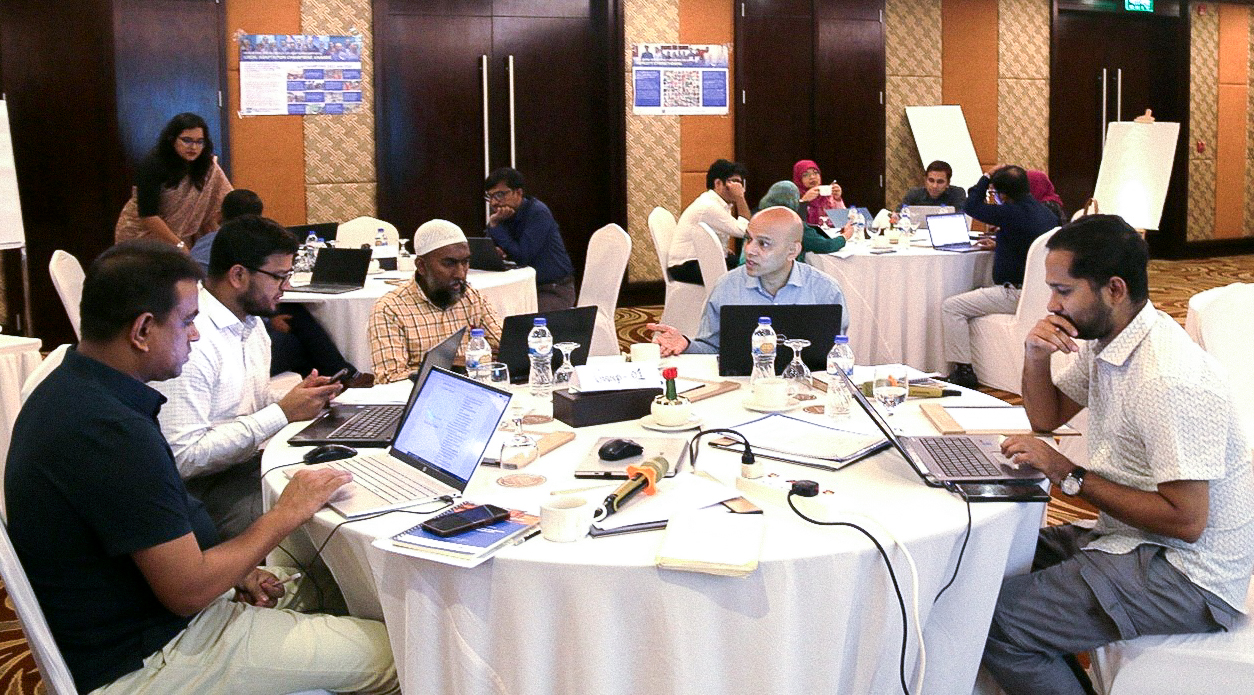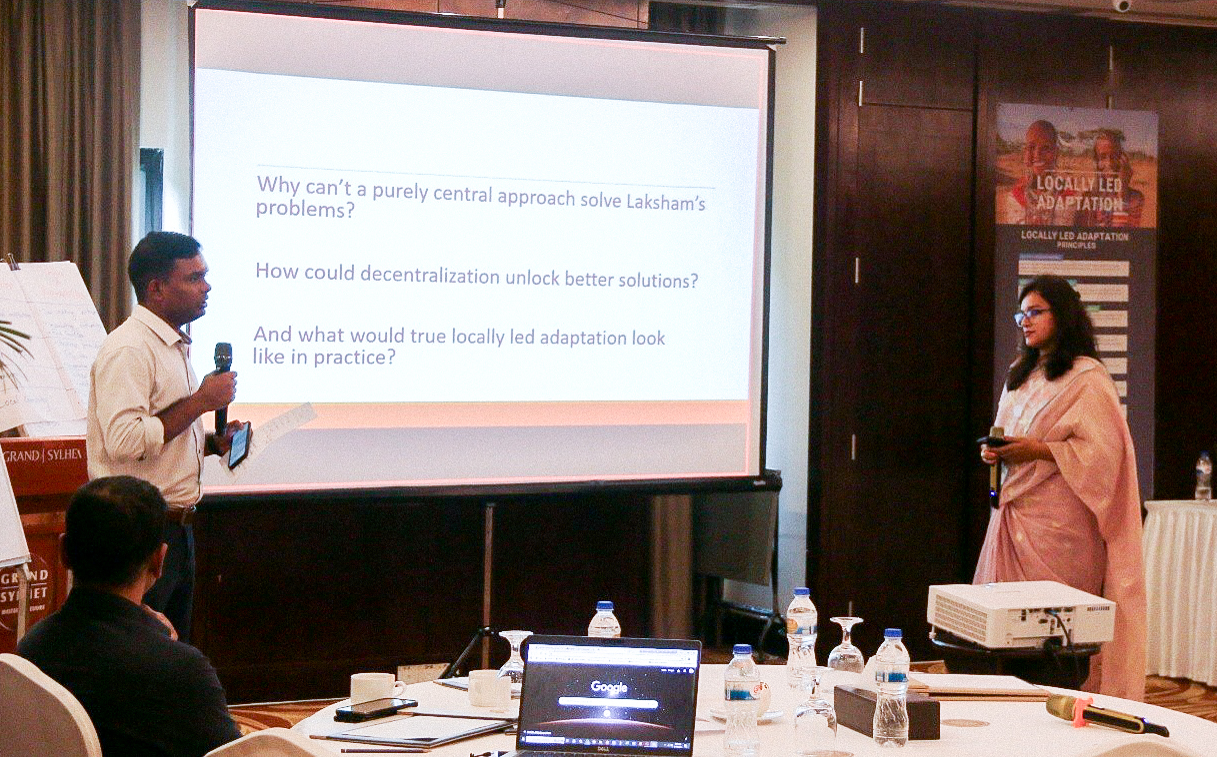
Sylhet, Bangladesh, 11 September, 2025 — The Global Center on Adaptation (GCA), in collaboration with the Bangladesh Public Administration Training Centre (BPATC), the Institute for Housing and Urban Development Studies (IHS), and the Centre for Participatory Research and Development (CPRD), and with support from the Government of the United Kingdom, convened a five-day Module Co-Creation Workshop from 06–11 September 2025 at the Grand Sylhet Hotel & Resort. The workshop marked the second phase of efforts to embed locally led adaptation (LLA) into Bangladesh’s civil service training.
Building on the initial Training-of-Trainers (ToT) workshop held in May 2025, the Module Co-Creation Workshop brought together 15 BPATC faculty members to jointly develop training content for a new course, “Institutionalizing Locally Led Adaptation Across Sectors in Bangladesh”. Designed to be integrated into BPATC’s curriculum, the course will strengthen the capacity of public administrators to address climate change through inclusive and community-driven adaptation approaches.
The workshop began with an exposure visit to Laksam Municipality, one of the pilot municipalities where GCA is supporting the development of People’s Adaptation Plans under the Bangladesh Smart Cities Development Project financed by the Asian Infrastructure Investment Bank. Faculty members engaged directly with residents of low-income communities to understand climate-related challenges and witness how locally led planning processes are shaping inclusive, climate-smart city development.
Over the course of the week, participants worked in groups to develop outlines, delivery plans, and suggested readings for 12 thematic sessions that will constitute the envisioned course. A highlight of the program was a knowledge-sharing session with Dr. Joy Elamon from the Kerala State Disaster Management Authority, who drew on Kerala’s experience in developing Local Climate Action Plans to illustrate how adaptation can be mainstreamed into local and sectoral planning.
"During our visit to Laksam, we clearly saw that communities face challenges that cut across multiple sectors. To address these effectively, we need integrated, multisectoral plans that are informed by local realities and owned by local people," said Dr. Joy Elamon.
Climate change cannot be tackled in silos. True adaptation happens on the ground — and bridging that gap requires locally led, cross-sectoral action.
On the final day, faculty members delivered mock trial sessions based on their draft modules and received expert feedback from facilitators and invited experts, including David Dodman, General Director, IHS, and Mirza Shawkat Ali, Director of Climate Change at the Department of Environment, Ministry of Environment, Forest and Climate Change.
In his closing remarks, Mirza Shawkat Ali emphasized the role of BPATC in advancing LLA in Bangladesh.
“As the country’s premier public training institute, BPATC has a vital responsibility to prepare government officials to embed locally led adaptation approaches into their work. This is essential for implementing Bangladesh’s National Adaptation Plan, where LLA is recognized as a cross-cutting priority,” said Shawkat Ali. “By building the capacity of BPATC faculty, this initiative helps bridge the gap between central government planning and local-level delivery, ensuring adaptation actions truly respond to the needs of communities.”
In the coming weeks, faculty members will refine and finalize the 12 session packages being designed, with mentoring support from national and international experts where needed. These will be consolidated into a five-day standalone course on “Institutionalizing Locally Led Adaptation Across Sectors in Bangladesh” to be rolled out by BPATC as a certified training course for government officials. BPATC, with support from GCA, plans to seek financing from the Bangladesh Climate Change Trust Fund in this regard.
BPATC also plans to adapt elements of the course into one-day workshops delivered through its Regional Public Administration Centre (RPATC) in divisional cities, targeting local-level government officials. These sessions will be facilitated by the trained pool of BPATC faculty members.
Beyond the immediate course development, the initiative has created a pool of BPATC trainers skilled in LLA who can integrate these concepts across BPATC’s wider portfolio of training programs. This is expected to play a pivotal role in equipping civil servants across Bangladesh to embed LLA in their work, thereby strengthening the country’s capacity for effective, inclusive adaptation and advancing the implementation of the National Adaptation Plan of Bangladesh.
